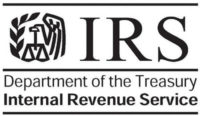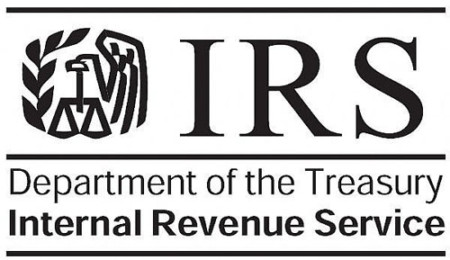The cannabis business landscape is complex and is under constant review and control. Further, rules and regulations from both federal and state governments can pose additional challenges and barriers to business owners. For those unfamiliar, there is a section of Internal Revenue Code, Section 280E, that prohibits taxpayers who are engaged in the business of buying and selling certain controlled substances from deducting many typical business expenses that other businesses are able to freely deduct.
What is Section 280E and What Challenges Does it Pose?
A dispensary could deduct the cost of the product it sells, but due to Section 280E it would be unable to deduct necessary and ordinary business expenses such as building rent, insurance or employee wages. This can create a significant tax burden, as taxable income is calculated at the gross profit level instead of starting with net income. As a result, Section 280E has become increasingly relevant for cannabis businesses, which have grown substantially in recent years due to more states opting to legalize marijuana. But despite this trend towards legalization at the state level, cannabis with more than 0.3% THC remains illegal under federal law, which raises questions surrounding Section 280E.
In this article, we take a closer look at recent court cases that highlight challenges with Section 280E, the related outcomes and what it means for businesses in the cannabis space.
Challenging its Constitutionality
Patients Mutual Assistance Collective Corp. v. Commissioner, also known as the Harborside Case, partially involved legal arguments against the constitutionality of Section 280E under the 16th amendment. Harborside argued that income must be present for the IRS to levy an income tax, however Section 280E can frequently cause taxpayers to experience real losses along with taxable income. They argued that they were forced to pay taxes while losing money.
 Two circuit courts before this case upheld that Section 280E did not violate either the 8th or 16th amendments to the constitution, leading to the court declining to even address the constitutionality claim. The court addressing a constitutionality issue could lead to unintended consequences for unrelated code provisions, leading this strategy to likely fail due to the mess it could unravel.
Two circuit courts before this case upheld that Section 280E did not violate either the 8th or 16th amendments to the constitution, leading to the court declining to even address the constitutionality claim. The court addressing a constitutionality issue could lead to unintended consequences for unrelated code provisions, leading this strategy to likely fail due to the mess it could unravel.
Attracting Customers with Freebies
Olive v. Commissioner involved a medical cannabis dispensary that also operated a consumption lounge. While the consumption lounge revenue entirely consisted of sales of medical cannabis, the business also provided services such as health counseling, movies, yoga, massage therapy and beverages at no additional cost. The business attempted to deduct the expenses of these free services as well as the cost of the cannabis itself.
The IRS denied the deductions for the additional services due to the sole source of revenue coming from cannabis sales. The court held that the expenses related to free services were designed to benefit and promote the sales of cannabis and induce further business from its customers.
The court did acknowledge that expenses can be allocated between two separate trades or businesses while still complying with 280E. However, distinct revenue streams need to be established to show the clear separability of the activities and care must be taken to document and support the expense allocations.
Co-mingling Cannabis and Non-Cannabis Enterprises
In the case of Alternative Healthcare Advocates v. Commissioner, the owner of a retail dispensary established a separate management corporation to provide management functions to the dispensary business. The two businesses shared identical ownership, and the management company solely provided services to the joint owner’s dispensary. The management company hired employees, advertised, and handled rent and other regular business expenses on behalf of the dispensary.
Despite the argument from the taxpayer that the businesses were separate entities, and that the management company did not own or “touch” cannabis in any way, the Tax Court ruled that both companies were in the business of trafficking illegal substances. This disallowed expenses on both entities. The IRS argued successfully that the operations of both companies were intertwined. The fact that the management company broke even on expenses and provided no services to any other unrelated entities meant that while legally separate, they were considered part and parcel to each other.
The Solution: Clear Documentation, Allocation and Separation
Californians Helping to Alleviate Med. Problems, Inc. v. Commissioner (CHAMP) involved a public benefit corporation that provided caregiving services along with cannabis to customers suffering from diseases. In this case, the taxpayer argued that they had two separate and distinct lines of service, being the sale of cannabis, and the sale of caregiving services.
 While the IRS disagreed with this position and attempted to apply Section 280E to the entire entity, the Tax Court disagreed. It held that the taxpayer was operating with a dual purpose, the primary being the caregiving services, and the secondary being the sale of medical cannabis. The taxpayer’s customers were required to pay a membership fee and received extensive caregiving services, including support groups, one-on-one counseling, addiction counseling services, hygiene supplies and even food for low-income members. While the membership fee did include a set amount of medical cannabis, it was not unlimited. The Court held that the taxpayer’s extensive records and documentation clearly demonstrated two separate and distinct lines of business, with the caregiving being a primary service and the medical cannabis being secondary.
While the IRS disagreed with this position and attempted to apply Section 280E to the entire entity, the Tax Court disagreed. It held that the taxpayer was operating with a dual purpose, the primary being the caregiving services, and the secondary being the sale of medical cannabis. The taxpayer’s customers were required to pay a membership fee and received extensive caregiving services, including support groups, one-on-one counseling, addiction counseling services, hygiene supplies and even food for low-income members. While the membership fee did include a set amount of medical cannabis, it was not unlimited. The Court held that the taxpayer’s extensive records and documentation clearly demonstrated two separate and distinct lines of business, with the caregiving being a primary service and the medical cannabis being secondary.
From these court cases and outcomes, it is clear that Section 280E can be confusing. The cannabis industry is a high-risk area, and the IRS has successful court cases to stand behind to back their legislation and agenda. These cases demonstrate two very simple concepts: first, businesses have attempted many creative ways of sidestepping Section 280E and failed; and second, clear documentation and detailed financial records are key, and will be paramount to support any tax positions related to Section 280E.
With the risks associated with conducting business in the cannabis industry, there is a strong likelihood that it will be high on the IRS’ radar over the next few years. Cannabis businesses should carefully consider their interpretation and application of Section 280E as it relates to the costs within their business. It will be important for businesses to utilize and consult with experienced attorneys and cannabis accountants to ensure they not only maintain compliance with federal laws, but also keep up with the changing regulations and court test opinions.
Disclaimer: The summary information presented in this article should not be considered legal advice or counsel and does not create an attorney-client relationship between the author and the reader. If the reader of this has legal questions, it is recommended they consult with their attorney.























